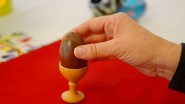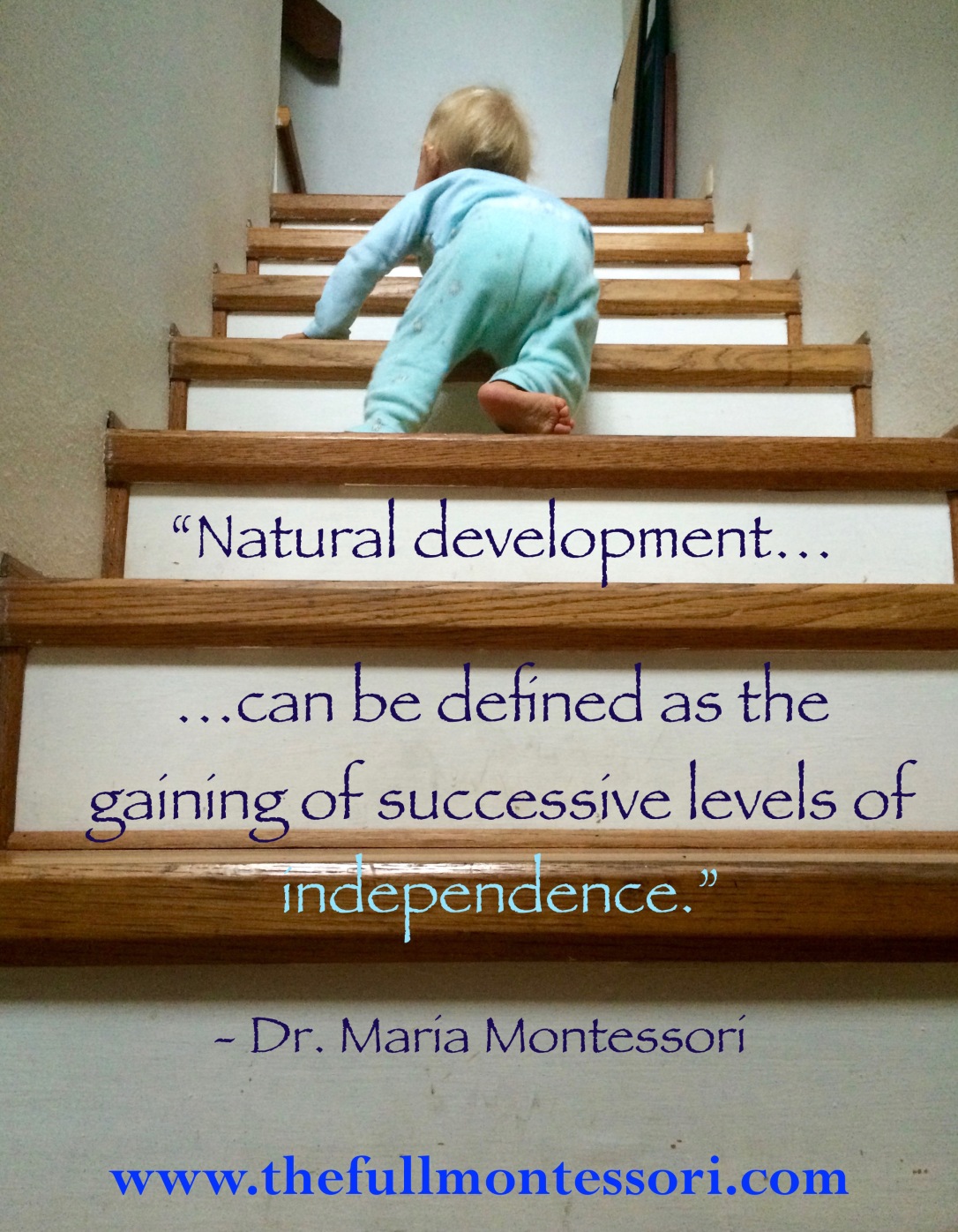When I became a mom, I realized that it takes a parent to understand a parent. I have been blessed to have a worldwide community of Montessori-trained friends who are navigating the same beautiful, yet often turbulent, waters of parenthood with me.
One of my wisest friends is Junnifa Uzodike, the founder of the Nduoma Montessori blog. She contacted me through my blog some years ago, when she was beginning her Montessori journey, and we have shared countless conversations about motherhood and Montessori.
What sets Junnifa apart is her adherence to the Montessori philosophy against all odds. Through two international moves, several summers of intense training, and three pregnancies she remains steadfast in her study and application of Montessori. If she can do it, you can too! That’s why I’m proud to share Junnifa’s newest e-course, Understanding and Supporting Your Toddler.
Junnifa has agreed to share some of her deep wisdom in this interview. Enjoy!
*****
Please tell us about yourself and your family.
My name is Junnifa Uzodike. I live in Nigeria with my husband and we have 3 children: Solu, aged 3.5; Metu, aged 2; and a baby who will be here in a few weeks. Our parenting has been guided by the Montessori philosophy and we have implemented as much as we can, from conception, with each of our children.

Can you share your Montessori journey with us?
I discovered Montessori rather serendipitously. My mother, who is an educator and school owner, was visiting the U.S. and wanted to observe some schools in the area where I lived. One of the schools was a Montessori school and I happened to have accompanied her. Observing the children has such an immense impact on me. I was amazed at the beauty and order of the environment as well as the independence and the concentration of the children. It was literally life-changing for me. I went home and ordered all the Montessori books available in my local library. I also signed up for an “Introduction to Montessori” course which only increased my interest and admiration for the philosophy.
My desire to learn more led me to quit my management job at Fortune 500 company and enroll in the AMI 0-3 training. My first son was born soon after and seeing the effect of our parenting choices on his development only made me want more. I have gone on to complete the AMI 3-6 training as well as the RIE (Resource for Infant Educarers) Foundations course. Since giving birth to my children, I have mostly stayed home with them. I have also consulted for schools, worked with parents, run parent- child classes and briefly led a toddler class. My training and experience so far have shown me the importance of the first three years in laying the foundation for the rest of the child’s life and so I get the most joy from supporting parents as they guide their children through these crucial years.

What are the three most important pieces of advice that have helped you in your parenting journey?
Observe before you react.
I have found that when I pause before reacting to my children’s actions, it gives me a chance to see, to understand, to evaluate and most especially to compose myself. It allows me to respond respectfully with understanding instead of reacting and a lot of times, it allows me realize I don’t even have to respond or react.
Model instead of teaching.
I grew up with a lot of verbal admonishing and lecturing and I sometimes catch myself defaulting to that but my children have confirmed to me that children absorb what we model and not what we say. They do what they see me doing, talk how they see me talking, and respond the way I respond. When I notice negative behaviors, I can usually reflect to see who has been modeling that to them. We talk a lot about preparing the environment and I think the adult is a very important part of the environment so we must prepare ourselves so that we are modeling what we want the child to be.
“This too shall pass!”
Sometimes children go through stages that just make no sense and we try everything and it’s just not working. It is important to not overreact because our negative reaction might stay with the child consciously or unconsciously even longer that whatever stage he is going through. I have found that taking deep breaths and just chanting “this too shall pass” in my head helps me until it passes because it always does!

Why did you decide to create the “Understanding and Supporting Your Toddler” e-course?
I created the course to share this gift that I have been given. The AMI Montessori training courses cost a lot financially and otherwise ( I had to move to two different countries and be separated from my husband). I realize that not everyone can take the courses and really, not everyone needs to. So I wanted to provide access to the information that is useful to parents.
I also created the course because I found that a lot of the information and resources that were available focused on the periphery of the philosophy and did not really go into the core or the essence. Parenting the Montessori way is not about Pinterest-worthy rooms or wooden toys. It’s about understanding the child’s true needs and supporting them as best we can. This can be done regardless of where you are and what you have. This is what I really want to communicate in the course. I think that a deep understanding of the child gives us new eyes and that allow us to see the child for who he truly is…

*****
Junnifa, thank you for taking the time to share your journey with us! If you’re ready to embark on your own Montessori journey to help guide your child’s development, sign up now for
Understanding and Supporting Your Toddler. Just click the link and change your life, because the “terrible two’s” don’t have to be so terrible!
This post contains affiliate links.
Enjoy? Then please share!







 In an earlier
In an earlier  Most commercial toys try to cram a lot of “bang for their buck”. Imagine, with just one toy, your child will be able to learn colors, numbers and shapes! She’ll practice sorting and stacking while listening to classical music, and each time she does it right, the toy will light up and shout out “Good job!”
Most commercial toys try to cram a lot of “bang for their buck”. Imagine, with just one toy, your child will be able to learn colors, numbers and shapes! She’ll practice sorting and stacking while listening to classical music, and each time she does it right, the toy will light up and shout out “Good job!” Many parents like to help feed or dress their children, even when the children become capable of doing it on their own, because they feel it’s a way of showing love. While parents who follow the Montessori philosophy understand that it’s important to support their child’s budding independence, they sometimes don’t know how to channel their affection in a way that’s helpful to their child’s development!
Many parents like to help feed or dress their children, even when the children become capable of doing it on their own, because they feel it’s a way of showing love. While parents who follow the Montessori philosophy understand that it’s important to support their child’s budding independence, they sometimes don’t know how to channel their affection in a way that’s helpful to their child’s development! Table manners… Healthy eating habits… Self-control. We all want our children to develop these abilities, but it’s hard for parents to know how and when to start! Did you know that children have the potential to develop these qualities from the time they start showing interest in solid food?
Table manners… Healthy eating habits… Self-control. We all want our children to develop these abilities, but it’s hard for parents to know how and when to start! Did you know that children have the potential to develop these qualities from the time they start showing interest in solid food?
 Thirty thousand. 30,000! That’s the number of words scientists say you should be speaking to your child daily to increase his chances of academic success. Most parents reach and exceed this magic number, but how do you know if your child is really benefiting from your efforts? Do you feel you might be choosing the wrong words or confusing your child by rambling?
Thirty thousand. 30,000! That’s the number of words scientists say you should be speaking to your child daily to increase his chances of academic success. Most parents reach and exceed this magic number, but how do you know if your child is really benefiting from your efforts? Do you feel you might be choosing the wrong words or confusing your child by rambling?